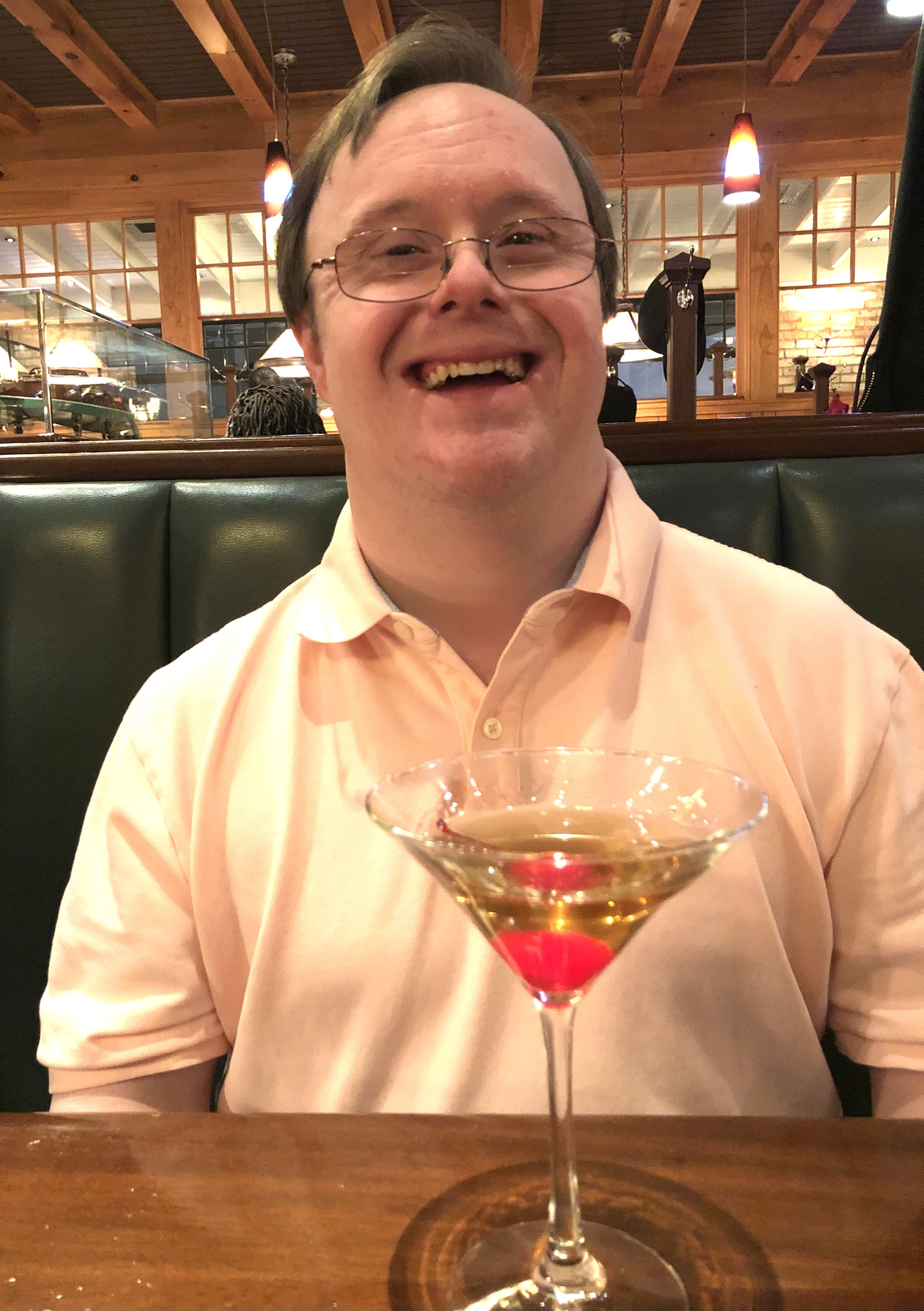Grammy-nominated singer and actress Jordin Sparks to perform at the AcceptAbility Gala at the Marriott Marquis next Thursday, May 9.
The Global Down Syndrome Foundation (GLOBAL) will host the 2024 AcceptAbility Gala at the Marriott Marquis next Thursday, May 9. Policymakers, key National Institute of Health (NIH) scientists, and the Down syndrome community will attend. Tickets are available online, and donations are welcome.
 Frank Stephens of Fairfax, member of the Global Board, a Global Ambassador, and a self-advocate, enjoys his specialty drink named after him at Artie’s in Fairfax.
Frank Stephens of Fairfax, member of the Global Board, a Global Ambassador, and a self-advocate, enjoys his specialty drink named after him at Artie’s in Fairfax.
Michelle Sie Whitten, president and CEO of the Global Down Syndrome Foundation, said in an interview that the event's success includes the involvement of NIH and the creation of a petition for increased research funding. According to Whitten, GLOBAL advocates and lobbies the federal government for equitable and transformative funding for Down syndrome research. “But more needs to be done,” she said.
The gala will support research and medical care funding for children and adults, like Isla Eager, GLOBAL’s 2024 Ambassador, a preschooler with Down syndrome who lives in Arlington with her parents.
“We know there may be more medical challenges in Isla’s future. We are grateful for the work the Global Down Syndrome Foundation is doing daily to ensure that when the day comes, we have the research and resources to receive the best medical care possible for Isla,” said her parents.
The evening starts with a 6 p.m. reception and red carpet, followed by a 7 p.m. dinner, live auction, and special performances. Celebrities and elected officials include Grammy-nominated singer and actress Jordin Sparks and members of Congress. During the event, GLOBAL will honor young Ambassador Isla Eager, U.S. Representative Lois Frankel (D-Florida), and U.S. Rep. Richard Hudson (R-NC), who will receive the Quincy Jones Exceptional Advocacy Awards for their advocacy and support for those with Down syndrome.
Whitten said that when her daughter, Sophia, was born with Down syndrome in 2003, the funding for Down syndrome research was around $20 million. For the last two decades, it's been between $16 million and $20 million annually; in comparison, autism research was close to $200 million.
“What's exciting is that in Congress and NIH, we have champions there who have helped us a lot, and now, in 2023, we were at approximately $133 million — so, we are moving that needle up every year. In particular, there is a program at NIH called the Include Project, which is an NIH funding model, so that's super exciting,” Whitten said. She discussed the lack of knowledge regarding medical conditions impacting people with Down syndrome, such as Alzheimer's and heart disease.
Frank Stephens of Fairfax is an actor and adult living with Down syndrome. In an interview, he shared the story of his involvement with GLOBAL and the personal impact of Down syndrome on his life. Stephens’ experiences with GLOBAL started small and grew more extensive. He is a member of the Global Board, a Global Ambassador, and a self-advocate.
”GLOBAL is the world’s largest fundraiser and supporter of Down syndrome research. It is responsible for the first comprehensive medical care guidelines for treating special issues we face,” Stephens said. He mentioned that people with Down syndrome are much more likely than others to develop leukemia, which is cancer of the white blood cells, and experience heart problems.
Stephens stressed that individuals with Down syndrome are not “cursed.”
“We live full, happy lives. We dream the same dreams and enjoy the same things that everyone wants. Our lives might surprise you. I have had dinner at the White House and watched the sunset over Lake Como [in Italy]. On many Friday nights, you might find me at Artie’s in Fairfax, where everybody can order a cocktail called Frank’s Night Out.”
